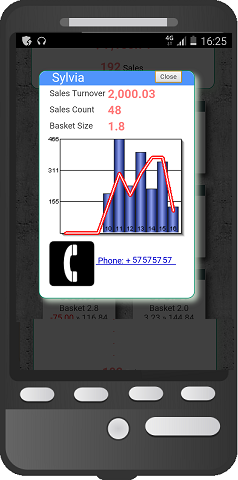Step 1 - Create a form to capture card details
| Card# | |
| Password | |
Step 2 - Create a handler to get request card details from your webserver
On this web page add logic to send the card and password to your server
/SomeRequestUrl?card=xxx&pass=yyy
Step 3 - Add logic to your server
On your server implement the "SomeRequestUrl" handler to perform the equivalent of this pseudo code
function SomeRequestUrlHandler(card, pass) {
// Create a request object
var req = new Object;
req.filter_card = card;
req.filter_pass = pass;
req.apikey = YOUR-SECRET-API-KEY;
// Fieldpine.com requires at least the following two pieces of information to provide
// some preliminary fraud detection. If you do not supply this detail
// you can still retrieve card details at a highly reduced request rate
req.client_Ip = Client browsers IP address
req.client_UserAgent = Client browsers User-Agent header
var x = new XMLHttpRequest();
var Rm = "1,2,3,4"; // Retailers RmSystem#. This uniquely identifies this retailer to Fieldpine
x.setRequestHeader("X-Api-Key", req.apikey);
x.open("POST", "https://a1.fieldpine.com/RetailApi,"+Rm+"/request/card_inquiry.js", true);
x.send(JSON.stringify(req));
// Actual implementation will need you to handle response from a1.fieldpine.com and return this to your
// client browser.
}
Step 4 - Using Multiple servers
Optional.
Each retailer at fieldpine.com is assigned to multiple servers capable of handling requests about their data. You can retrieve a list of servers for a
given retailer when you know the RmSystem#.
https://fieldpine.com/anywhere_1_2_3_4/config/hostlist.js
This information is considered public and does not require an API key to retrieve it. The response information is considered slowly changing so you may cache this information
for several days without repeating the request.
The response will contain an array called "APIN", which is a list of Api servers that can answer for this retailer. You may query any of the IP addresses supplied. If one server is not currently available, you can optionally fail over to another server. You will see that the response contains details of serveral servers and addresses, including some details which are encrypted.
Example Response
{
"RootType":"ARAY",
"Dt":"09-Dec-2018 11:39:22",
"APIN":[
{
"IP":"a1.fieldpine.com",
"Type":"api",
"Geo":"NZ",
"Priority":1,
"PUBL":[
{"Website":"bx1.fieldpine.com","Priority":1}
,{"Website":"bx2.fieldpine.com","Priority":2}
,{"Website":"bx1.fieldpine.com","Priority":3}
,{"Website":"bx2.fieldpine.com","Priority":4}
]
},
{
"IP":"a2.fieldpine.com",
"Type":"api",
"Geo":"NZ",
"Priority":2,
"PUBL":[
{"Website":"bx2.fieldpine.com","Priority":1}
,{"Website":"bx1.fieldpine.com","Priority":2}
,{"Website":"bx2.fieldpine.com","Priority":3}
,{"Website":"bx1.fieldpine.com","Priority":4}
]
}
],
"MESH":[
{"IP":"m1.fieldpine.com","Type":"meshmemory","Geo":"NZ","Priority":1}
],
"STOR":[
{"IP":"s1.fieldpine.com","Type":"storage","Geo":"NZ","Priority":1,"Protocol":"http"}
],
"STOE":[
{
"IP":"AOKWI38SNDBJDUQML8SKSO20DFN44Y",
"Type":"storage",
"Geo":"DE",
"Priority":1,
"Protocol":"sj29j91283Bh7FP0XfR6HJ7yhLeYI28nBMuWE93mOkis",
"Transform":"K1.28947364.FJ392fhfGhj329Kz$b"
}
]
}
Worked Example
| RmSytem# | This is server side, but shown here for example purposes | |
| ApiKey | This is server side, but shown here for example purposes | |
| Card# | ||
| Password | ||

 Retail API
Retail API Documentation
Documentation User Guides
User Guides Technical
Technical Deep Internals
Deep Internals Online POS
Online POS Live Results
Live Results Supplier Uploads
Supplier Uploads Live Events
Live Events More
More Downloads
Downloads